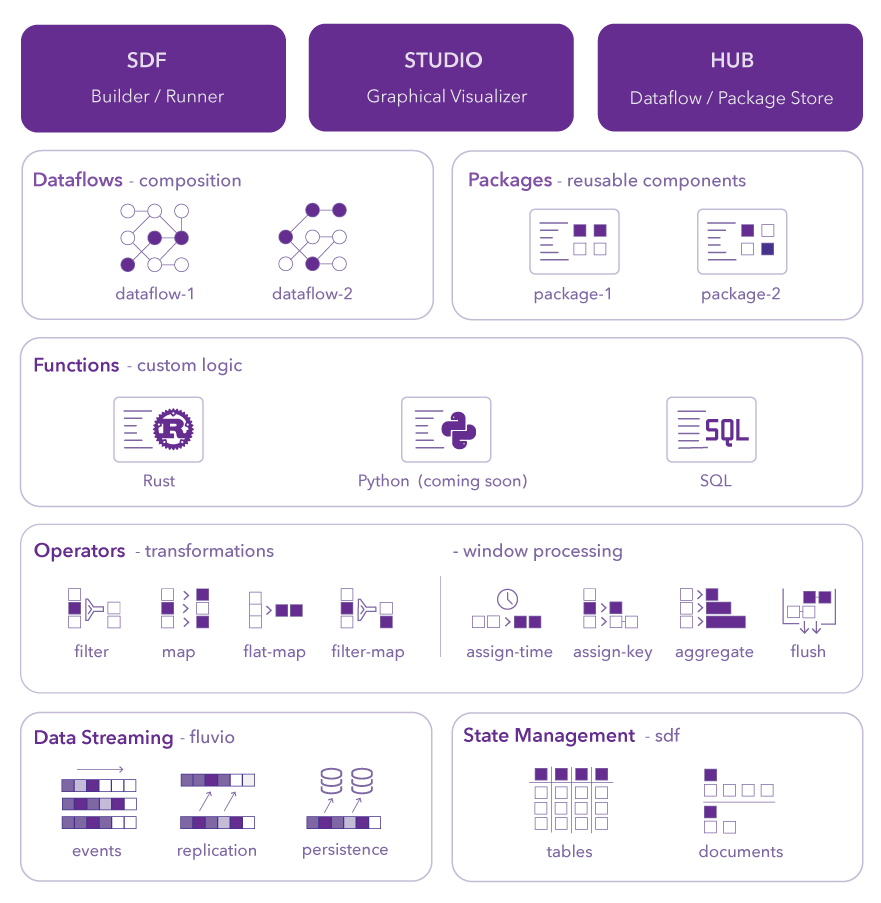SDF Architecture Diagram
This InfinyOn Data Stack is designed to handle complex data processing workflows, allowing for customization and scalability through various programming languages and system primitives.

Let's define each layer from bottom to top.
Data Streaming & State Management
At the core, the InfinyOn data stack combines data streaming and state management technologies. Fluvio handles event streaming, persistence, replication, and connections with external data sources and target destinations. SDF manages state objects such as SQL tables and key-value documents.
Services
Services, while omitted from the diagram, define the composition of a subsection of the data-pipelines. Services define the data source, chain of operations, state objects, and the destination.
Operators
Operators are functions and primitives that provide access to data streaming records and stateful objects. There are two types of operators for transformations and window processing. The first type performs record-by-record operations such as filter, map, filter-map, or flat-map. The second allows the user to shape the records into a bounded context for window processing. These window operations are computing aggregates, aka materialized views.
Functions
Operators generate functional APIs with placeholders for the user to apply their custom business logic. Custom logic can apply transformations, perform call-outs for third-party applications, build state objects, and more. See the examples in github for more details. The functions support programming languages like Rust and Python (coming soon) or SQL queries.
Dataflow & Packages
A dataflow is a collection of functions and operators switched together to form a data processing workflow. Dataflows are defined inline or composed via packages. The packages are collections of types, states, and functions that are built and tested independently. A package can be imported locally or shared via InfinyOn Hub and applied to multiple dataflows.
SDF (Builder / Runner)
SDF is the primary component for building and running dataflows; it consists of the runtime engine and the command line interface (CLI). The engine provisions workers to execute the functions and operators. The CLI allows you to create and test packages and deploy dataflows.
Studio (Graphical Visualizer)
The studio is the dataflow visualization tool. It allows you to investigate the hierarchy of the dataflow and show runtime analytics. Future releases will allow you to build dataflows via a drag-and-drop interface.
Hub (Dataflow/Package Store)
InfinyOn Hub is the data store for packages and dataflows. It allows you to share dataflows and packages with other users.